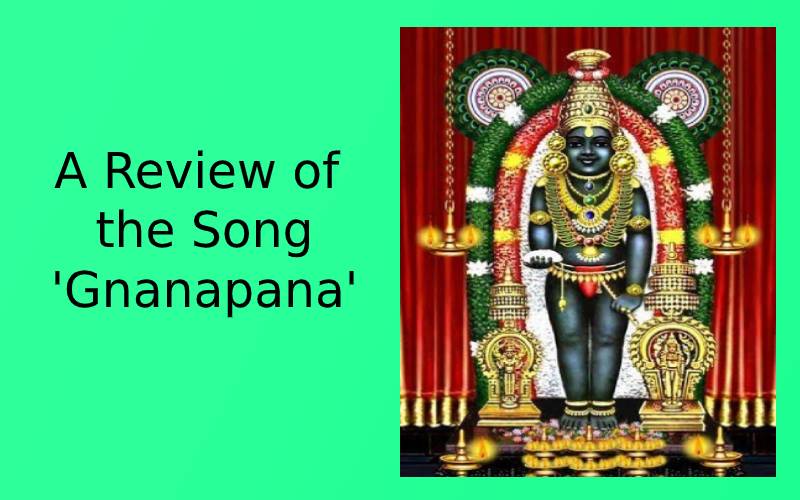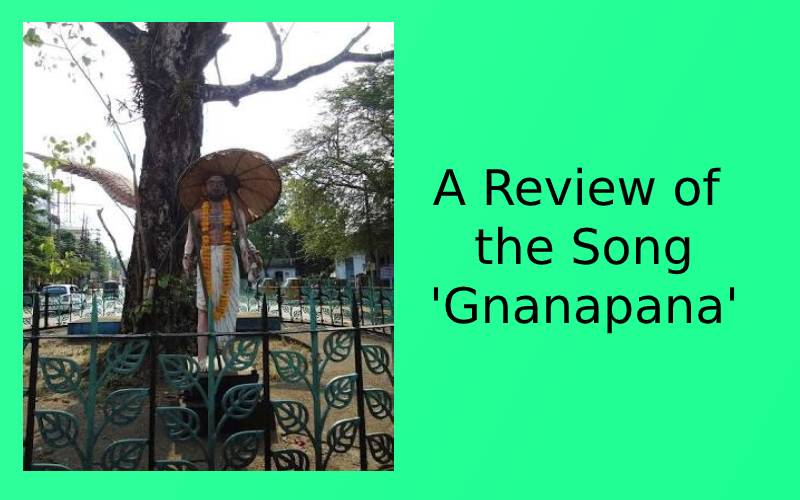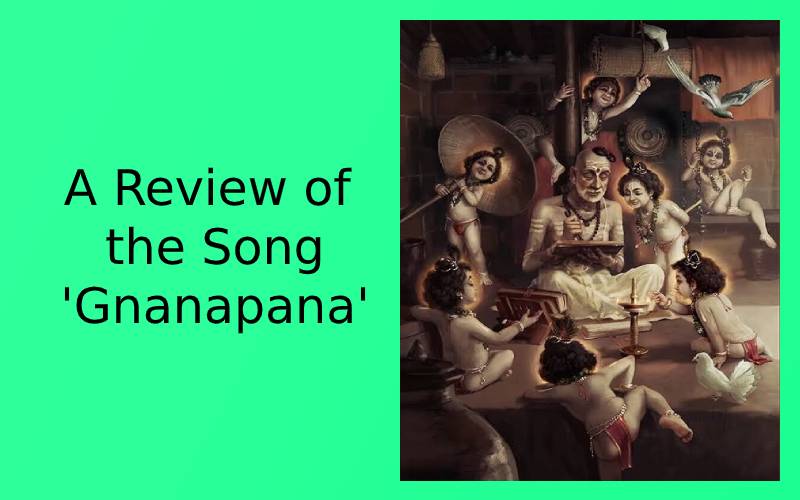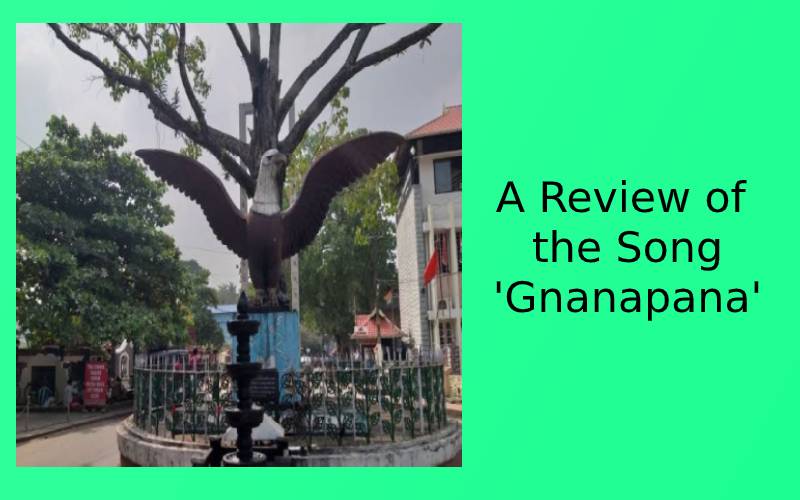A Philosophical Poem

Introduction:
We all know the world fame Guruvayur temple where Lord Vishnu is worshipped as Krishna. The Lord here is affectionately known as ‘Guruvayurappan’ as a token of mercy towards his devotees Brihaspati and Vayu for installing Him there. The place is even more glorious since it was here that the Prachetas, the ten saintly sons of great king Prachinabargis, had a vision of Lord Shiva who instructed them ‘Rudra Gita’ in which Lord Shiva taught the worship of Lord Narayana to Prachetas long ago. This is found in the fourth canto of Srimad Bhagavatam. It is believed that Lord shiva himself meditates under water in this temple pond. Hence, this pond is known as ‘Rudra Theertham’. It is also known as Narayana Saras because of the presence of Lord Narayana, in the Rupa of Guruvayurappan, with four hands. There are many devotees who moved the lord with their unflinching devotion. Among them Kururamma, Vilva Mangala Samiyar, Narayana Bhattatri, Manjula and Sripad Poonthanam were very dear to the Lord Guruvayurappan. Let us discuss about Sripad Poonthanam and his masterpiece ‘Gnanapana’ in this article.

Sripad Poondhanam:
Sripad poondhanam (1547-1640 A.D) was a great devotee of Guruvayurappan. He lived at Keezhattoor in Malappuram district. His works are ‘Bhasha Karnamritam’, ’Kumaraharanam’, ‘Santhana Gopalam’ and ‘Gnanapana’. It is said that Poondhanam married at 20 but did not have children for a long time and he prayed to Krishna with Santana Gopalam verses. He got a child, but the child died few hours before its naming ceremony. Poondhanam prayed with Pauranic story of ‘Kumaraharanam’ and cried at Sri Krishna. Krishna consoled him by sitting on his lap. Poondhanam treated Krishna as his child and have sung many verses in His praise. There is another anecdote where poondhanam was reciting Vishnu Sahasranamam with devotion near the sanctum sanctorum of Guruvayurappan daily. It seems that as he was not a scholar, he mispronounced ‘Padmanabho Amara Prabhu’ as ‘Padmanabho Mara Prabhu’. Narayana Bhattatri, a devotee, and a Sanskrit scholar chided him for mispronouncing it and asked him to stop reciting Sahasranamam. Poondhanam cried towards Krishna that he is not even able to recite Sahasranamam properly. The following night Krishna appeared in Bhattatri’s dream and justified Poondhanam’s mispronunciation that He is the lord of devas and trees as well. Mara means tree. Both Rama and Krishna spent their time among the trees during their sojourn here. Hence, Krishna asserted that poondhanam is right in his pronunciation and ordered bhattatri to seek forgiveness from Poondhanam. The next day morning Bhattatri fell at the feet of Poondhanam and asked him to continue the recitation as usual.
Like this, there are several episodes in his life to extol the greatness of Sripad Poondhanam.

Gnanappana:
Poondhanam thought of composing a work with the quintessence of Bhagavad Gita and Srimad Bhagavatam in simple Malayalam. Thus, he gave a form to his ripen devotion as ‘Gnanapana’. Some state that ‘pana’ refers to a pot but scholars opine that ‘pana’ is a poetic metre in Malayalam. It consists of 360 lines of verse. Gnanappana is known for its use of opposing images through which the poet draws out the cosmic acts of Krishna through the web of karma.
The verses are in simple Malayalam that even a layman can understand the esoteric ideas of Vedas and Upanishads and Srimad Bhagavatam. It starts with an invocation to the lord and deals with the uncertainty of worldly life, the law of karma, transmigration of the soul, the greatness of Bharatavarsha, the fortune of the people born in Bharatavarsha, the advantages of Kaliyuga, the glory of the names of the lord, the path of liberation etc… it contains many phrases that comes handy to utter,
Krishna Krishna Mukunda Janardhana
Krishna Govind Narayana Hare…
Achyuthananda Govinda Madhava
Satchidhananda Narayana Hare….
This stanza is a refrain in Gnanapana. One can see the wisdom at its ripen form through the verses of Gnanapana.
Sripad Poondhanam asserts that we are fortunate enough to be born as human beings and that too in Bharatavarsha. He salutes the people of Bharatavarsha and asks us to spend the time in chanting the name of the lord. He says how it is difficult to be born as human and the sufferings of the previous births as animals, insects and what not. Thus, he persuades us to utilize this birth to attain liberation just by chanting the name of the Lord.
Let us learn and recite ‘Gnanapana’ and understand the essence of Bhagavad Gita and Srimad Bhagavatam.
There is another interesting episode from the life of Sripad Poondhanam. When we enter the divine realms of Gurupavanapuri, a majestic Garuda welcomes us with His outstretched wings. There we see a peepal tree under which there is a statue of Sripad Poondhanam facing the temple. This tree is called Manjulal. There is an interesting anecdote regarding this tree.

Once there was a devotee girl in Guruvayur named Manjula. She used to offer fresh floral garlands every day to Sri Guruvayurappan. One day, since it rained, she reached the temple late. By that time, the temple doors were closed for the day. Manjula felt very sad for being unable to offer the garlands to the Lord. She returned crying near the present peepal tree where elderly Sripad Poondhanam stood praying the lord. As he saw the little girl crying, he enquired the reason behind her tears. Manjula explained her sorrow of reaching the sanctum late and her inability to offer garlands to the lord. Sripad poondhanam explained the little girl that Krishna is everywhere and asked her to offer her garlands at the peepal tree thinking it as Krishna. Manjula did as advised by Poondhanam and felt happy for offering her garlands for the lord in the form of peepal tree and left home.
The next day when the priests opened the doors of the sanctum for daily rituals, the priests were unable to remove certain garlands from the deity. The more they removed, the more garlands were found on the Deity. Little girl Manjula reached the sanctum early that day to see Guruvayurappan as she didn’t see the lord the other day evening. She was astonished to see the same garlands which she offered to the tree the previous night was now found on the deity. Tears rolled down the cheeks of the little girl. Sripad Poondhanam arrived there and saw the priests standing confused and asked them to hand over the garlands to Manjula as prasadam. The priests did as instructed by Sripad Poondhanam. To the surprise of all, the deity was seen without garlands. Sripad poondhanam explained the mercy of the lord and the people understood the devotion of the little girl towards the Lord. Since that day, the peepal tree came to be known as Manjulal. Manjula and ‘Al’. ‘Al’ means peepal tree in Malayalam.
Every day let us worship this tree as the tree is non-different from the lord himself and remember Sripad Poondhanam and align our lives in accordance with the sublime verses of ‘Gnanapana’. Let us remember the gigantic Gajarajan Guruvayur Keshavan, an elephant devotee of the Lord, who propitiated Guruvayurappan with his devotional service and attained the lotus feet of the Lord on the auspicious day of Guruvayur Ekadashi.

Naveen Hari, M. A., B. Ed., a school teacher. He had been drawn towards Sanatana Dharma on his own interest from childhood.
NEXT ARTICLE